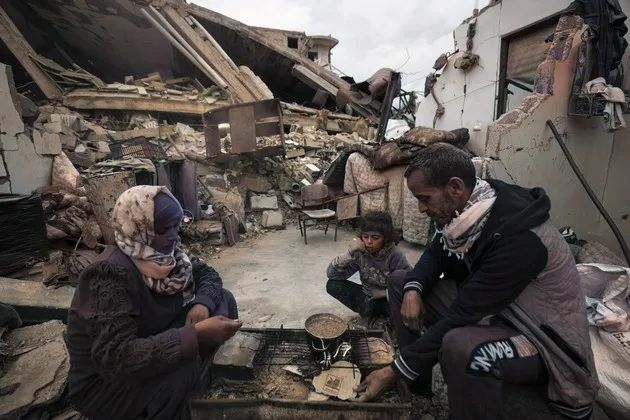As one of several options to a full-scale invasion of Rafah, the United States will advise Israel to fortify the Gaza-Egypt border, two U.S.
According to the plan, which The Times of Israel first revealed, Israeli forces would try to restrict Hamas terrorists’ capacity to transport weapons into Rafah, so impeding their ability to launch a fresh attack on Israel. It’s unknown how long Israel will stay at the border to keep an eye on and stop armaments shipments over this eight-mile distance.
Before an Israeli group visits Washington next week, Biden administration officials would offer other suggestions, according to the two U.S. officials who discussed the delicate conversations while speaking anonymously. One of the suggestions was to draw a border between Egypt and Gaza. This is one of several alternatives that the US will present in an effort to prevent a large-scale ground assault of Gaza City’s southern region.
One of the officials stated, “We have many other ideas.”
Although there isn’t a planned campaign, Israeli Prime Minister Benjamin Netanyahu has promised to dispatch Israeli troops to Rafah in order to target the approximately 3,000 Hamas militants that are present in the city. The growing number of civilian deaths in Gaza has alarmed the Biden administration, which has cautioned Israel against carrying out an operation that may endanger additional lives.
How far apart the US and Israel are on Rafah is evident from the preparations for the Washington conference. Though they disagree on the necessity of a large-scale military assault in the city to accomplish this goal, both parties concur that Hamas must be militarily defeated in Gaza.
Netanyahu informed the Knesset on Tuesday that “we are determined to complete the elimination of these battalions in Rafah, and there is no way to achieve this without a ground incursion,” according to a press statement from his desk.
When contacted for comment, the National Security Council remained silent.
Asserting that the United States has not yet seen a workable strategy to safeguard the over a million Palestinian civilians, national security advisor Jake Sullivan told reporters on Monday that “a major ground operation would be a mistake.” stationed in Rafah; many of them left the enclave somewhere after the war. Officials from the Biden administration have secretly discussed with their Israeli colleagues the possibility of agreeing to a more limited military action involving the destruction of targets that hold significant importance for Hamas.
President Joe Biden spoke with Israeli Prime Minister Benjamin Netanyahu on Monday, the first time in a month, due to the differences in their opinions about Rafah. Reiterating the US stance, Biden asked Israel to dispatch a delegation to discuss its intentions in Rafah and hear US counterproposals. For the meeting in Washington starting next week, Netanyahu confidant Ron Dermer, national security adviser Tzachi Hanegbi, and an Israeli military representative in charge of organizing aid to Gaza will be present.
The U.S. representative is still to be determined, but White House press secretary Karine Jean-Pierre informed reporters on Tuesday that “they will be high-ranking members of the administration from across the administration.”
Egyptian authorities have been applying pressure on Washington for months to persuade Israel from initiating a ground invasion of Rafah. It is feared by officials that the operation will force Gazans to escape to Sinai, which will increase the likelihood that Hamas militants will infiltrate the nation.
A proposal for Rafah that would permit a large increase in the quantity of assistance trucks crossing the border into southern Gaza has also been attempted to be negotiated by Israeli officials with Egypt in recent weeks. Plans that could further destabilize the border and the Sinai region as a whole have proven difficult for Egyptian officials to approve.

